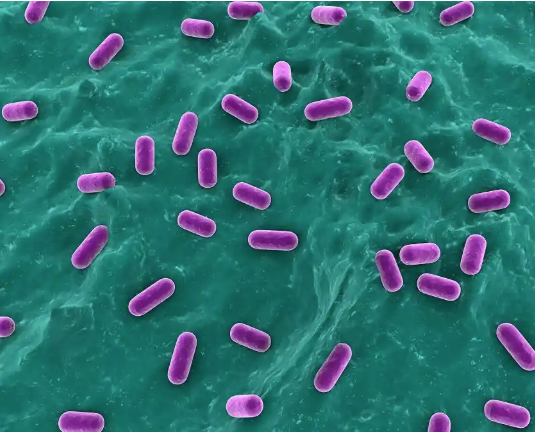| Identification | Back Directory | [Name]
Bacillus coagulans | [CAS]
68038-65-3 | [Synonyms]
Bacillus coagulis
Bacillus coagulans
Bacillusdede coagulans | [EINECS(EC#)]
924-436-4 |
| Hazard Information | Back Directory | [Description]
Bacillus coagulans (Bacillus coagulans), a gram-positive bacterium, belongs to the genus Firmicutes taxonomically. Its cells are rod-shaped, terminal spores, without flagella, and can decompose sugars to generate L-lactic acid. | [Characteristics]
Bacillus coagulans is a Gram-positive bacterium belonging to Firmicutes. The vegetative cells are rod-shaped and have certain motility. It can ferment glucose, sucrose, maltose, mannitol, raffinose, and trehalose to produce acid but not gas. , hydrolyzable starch and casein. | [Uses]
Bacillus coagulans can regulate the structure of intestinal flora, increase the number of beneficial bacteria in the intestine, inhibit and eliminate pathogenic antigens by producing bacteriocin through its own metabolism, enhance the survival ability of epithelial cells and build a complete biological barrier system, stimulate antibodies and anti-inflammatory The secretion of cytokines enhances the immune response of commensal bacteria, thereby effectively enhancing intestinal mucosal immunity, thereby improving the intestinal microenvironment. | [benefits]
Bacillus coagulans has been shown to have several positive benefits:
It can help digestion in the intestine and generate a variety of enzymes that aid in excretion.
It can control the symbiotic microbiota in the host and prevent harmful bacteria from growing.
It can significantly improve the host immune system by normalising both the quantitative characteristics of the immune system and the functional activity of immune cells.
Many B. coagulans strains have been investigated in treating and relieving numerous human illnesses due to the data supporting the diverse probiotic benefits of B. coagulans.
Consequently, administering B. coagulans might be a promising preventative therapeutic strategy for human illnesses. Also, the most imperative aspect to note here is that Bacillus Coagulans is not the same as Lactobacillus, a type of probiotic that breaks down food, fights off harmful bacteria, and aids in food absorption. Unlike Lactobacillus and other probiotics, B. coagulans may generate spores during its reproductive life cycle.

|
|
|